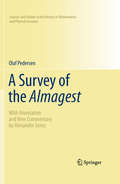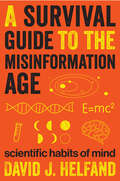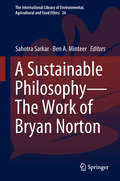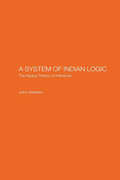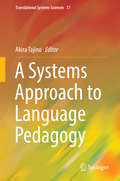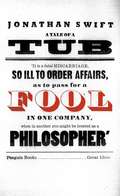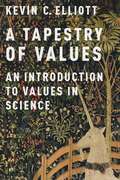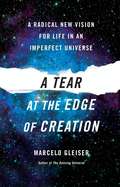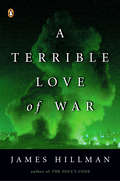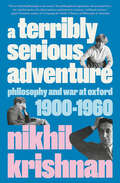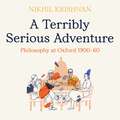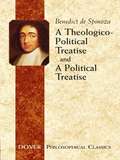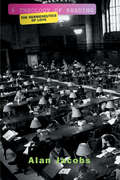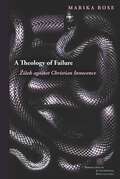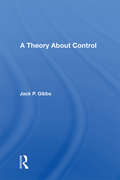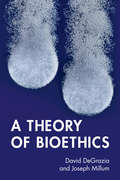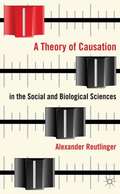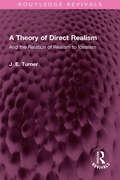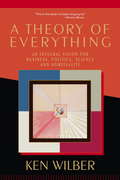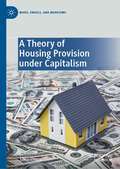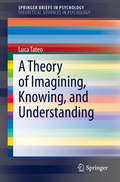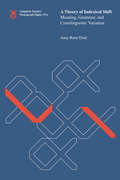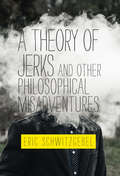- Table View
- List View
A Survey of the Almagest: With Annotation and New Commentary by Alexander Jones (Sources and Studies in the History of Mathematics and Physical Sciences)
by Alexander Jones Olaf PedersenThe Almagest, by the Greek astronomer and mathematician Ptolemy, is the most important surviving treatise on early mathematical astronomy, offering historians valuable insight into the astronomy and mathematics of the ancient world. Pedersen's 1974 publication, A Survey of the Almagest, is the most recent in a long tradition of companions to the Almagest. Part paraphrase and part commentary, Pedersen's work has earned the universal praise of historians and serves as the definitive introductory text for students interested in studying the Almagest. In this revised edition, Alexander Jones, a distinguished authority on the history of early astronomy, provides supplementary information and commentary to the original text to account for scholarship that has appeared since 1974. This revision also incorporates various corrections to Pedersen's original text that have been identified since its publication. This volume is intended to provide students of the history of astronomy with a self-contained introduction to the Almagest, helping them to understand and appreciate Ptolemy's great and classical work.
A Survival Guide to the Misinformation Age: Scientific Habits of Mind
by David HelfandWe live in the Information Age, with billions of bytes of data just two swipes away. Yet how much of this is mis- or even disinformation? A lot of it is, and your search engine can't tell the difference. As a result, an avalanche of misinformation threatens to overwhelm the discourse we so desperately need to address complex social problems such as climate change, the food and water crises, biodiversity collapse, and emerging threats to public health. This book provides an inoculation against the misinformation epidemic by cultivating scientific habits of mind. Anyone can do it—indeed, everyone must do it if our species is to survive on this crowded and finite planet.This survival guide supplies an essential set of apps for the prefrontal cortex while making science both accessible and entertaining. It will dissolve your fear of numbers, demystify graphs, and elucidate the key concepts of probability, all while celebrating the precise use of language and logic. David Helfand, one of our nation's leading astronomers and science educators, has taught scientific habits of mind to generations in the classroom, where he continues to wage a provocative battle against sloppy thinking and the encroachment of misinformation.
A Survival Guide to the Misinformation Age: Scientific Habits of Mind
by David J. HelfandLearning how to tell news from fake news from fake fake news: An &“important and timely&” book on protecting ourselves, and society, from the infodemic (Library Journal). We have billions of bytes of data at our fingertips. But how much of it is misinformation—or even disinformation? A lot of it is, and your search engine can&’t tell the difference. As a result, an avalanche of misinformation threatens to overwhelm the discourse we so desperately need to address complex social problems such as climate change, the food and water crises, biodiversity collapse, and emerging threats to public health. This book provides an inoculation against the misinformation epidemic by cultivating scientific habits of mind. Anyone can do it—indeed, everyone must do it if our species is to survive on this crowded and finite planet. This survival guide supplies an essential set of apps for the prefrontal cortex while making science both accessible and entertaining. It will dissolve your fear of numbers, demystify graphs, and elucidate the key concepts of probability, all while celebrating the precise use of language and logic. David Helfand, one of our nation&’s leading astronomers and science educators, has taught scientific habits of mind to generations in the classroom, where he continues to wage a provocative battle against sloppy thinking and the encroachment of misinformation. &“Provides a vital antidote to the ills of misinformation by teaching systematic and rigorous scientific reasoning.&” —The Times Literary Supplement
A Sustainable Philosophy—The Work of Bryan Norton (The International Library of Environmental, Agricultural and Food Ethics #26)
by Ben A. Minteer Sahotra SarkarThis book provides a richly interdisciplinary assessment of the thought and work of Bryan Norton, one of most innovative and influential environmental philosophers of the past thirty years. In landmark works such as Toward Unity Among Environmentalists and Sustainability: A Philosophy of Adaptive Ecosystem Management, Norton charted a new and highly productive course for an applied environmental philosophy, one fully engaged with the natural and social sciences as well as the management professions. A Sustainable Philosophy gathers together a distinguished group of scholars and professionals from a wide array of fields (including environmental philosophy, natural resource management, environmental economics, law, and public policy) to engage Norton’s work and its legacy for our shared environmental future. A study in the power of intellectual legacy and the real-world influence of philosophy, the book will be of great interest scholars and students in environmental philosophy, public policy and management, and environmental and sustainability studies. By considering the value and impact of Norton’s body of work it will also chart a course for the next generation of pragmatic environmental philosophers and sustainability scholars grappling with questions of environmental value, knowledge, and practice in a rapidly changing world.
A System of Indian Logic: The Nyana Theory of Inference
by John VattankyNyana is the most rational and logical of all the classical Indian philosophical systems. In the study of Nyana philosophy, Karikavali with its commentary Muktavali, both by Visvanatha Nyayapancanana, with the commentaries Dinakari and Ramarudri, have been of decisive significance for the last few centuries as advanced introductions to this subject. The present work concentrates on inference (anumana) in Karikavali, Muktavali and Dinakari, carefully divided into significant units according to the subject, and translates and interprets them. Its commentary makes use of the primary interpretation in Sanskrit contained especially in the Ramarudri and Subodhini. The book begins with the Sanskrit texts of Karikavali and Muktavali; followed by English translation of these texts. Next is given the Sanskrit text of Dinakari which comments on the first two texts, followed by its English translation. Lastly, the book contains a commentary on all the texts included.
A Systems Approach to Language Pedagogy (Translational Systems Sciences #17)
by Akira TajinoThis volume represents the first attempt in the field of language pedagogy to apply a systems approach to issues in English language education. In the literature of language education, or more specifically, second or foreign language learning and teaching, each topic or issue has often been dealt with independently, and been treated as an isolated item. Taking grammar instruction as an example, grammatical items are often taught in a sequential, step-by-step manner; there has been no “road map” in which the interrelations between the various items are demonstrated. This may be one factor that makes it more difficult for students to learn the language organically. The topics covered in this volume, including language acquisition, pedagogical grammar, and teacher collaboration, are viewed from a holistic perspective. In other words, language pedagogy is approached as a dynamic system of interrelations. In this way, “emergent properties” are expected to manifest. This book is recommended for anyone involved in language pedagogy, including researchers, teachers, and teacher trainers, as well as learners.
A Tale of a Tub
by Jonathan SwiftThroughout history, some books have changed the world. They have transformed the way we see ourselves - and each other. They have inspired debate, dissent, war and revolution. They have enlightened, outraged, provoked and comforted. They have enriched lives - and destroyed them. Now Penguin brings you the works of the great thinkers, pioneers, radicals and visionaries whose ideas shook civilization, and helped make us who we are.
A Tapestry of Values: An Introduction to Values in Science
by Kevin Elliott<p>The role of values in scientific research has become an important topic of discussion in both scholarly and popular debates. Pundits across the political spectrum worry that research on topics like climate change, evolutionary theory, vaccine safety, and genetically modified foods has become overly politicized. At the same time, it is clear that values play an important role in science by limiting unethical forms of research and by deciding what areas of research have the greatest relevance for society. Deciding how to distinguish legitimate and illegitimate influences of values in scientific research is a matter of vital importance. <p>Recently, philosophers of science have written a great deal on this topic, but most of their work has been directed toward a scholarly audience. This book makes the contemporary philosophical literature on science and values accessible to a wide readership. It examines case studies from a variety of research areas, including climate science, anthropology, chemical risk assessment, ecology, neurobiology, biomedical research, and agriculture. These cases show that values have necessary roles to play in identifying research topics, choosing research questions, determining the aims of inquiry, responding to uncertainty, and deciding how to communicate information. <p>Kevin Elliott focuses not just on describing roles for values but also on determining when their influences are actually appropriate. He emphasizes several conditions for incorporating values in a legitimate fashion, and highlights multiple strategies for fostering engagement between stakeholders so that value influences can be subjected to careful and critical scrutiny.</p>
A Tear at the Edge of Creation: A Radical New Vision for Life in an Imperfect Universe
by Marcelo GleiserFor millennia, shamans and philosophers, believers and nonbelievers, artists and scientists have tried to make sense of our existence by suggesting that everything is connected, that a mysterious Oneness binds us to everything else. People go to temples, churches, mosques, and synagogues to pray to their divine incarnation of Oneness. Following a surprisingly similar notion, scientists have long asserted that under Nature's apparent complexity there is a simpler underlying reality. In its modern incarnation, this Theory of Everything would unite the physical laws governing very large bodies (Einstein's theory of relativity) and those governing tiny ones (quantum mechanics) into a single framework. But despite the brave efforts of many powerful minds, the Theory of Everything remains elusive. It turns out that the universe is not elegant. It is gloriously messy. Overturning more than twenty-five centuries of scientific thought, award-winning physicist Marcelo Gleiser argues that this quest for a Theory of Everything is fundamentally misguided, and he explains the volcanic implications this ideological shift has for humankind. All the evidence points to a scenario in which everything emerges from fundamental imperfections, primordial asymmetries in matter and time, cataclysmic accidents in Earth's early life, and duplication errors in the genetic code. Imbalance spurs creation. Without asymmetries and imperfections, the universe would be filled with nothing but smooth radiation. A Tear at the Edge of Creation calls for nothing less than a new "humancentrism" to reflect our position in the universal order. All life, but intelligent life in particular, is a rare and precious accident. Our presence here has no meaning outside of itself, but it does have meaning. The unplanned complexity of humankind is all the more beautiful for its improbability. It's time for science to let go of the old aesthetic that labels perfection beautiful and holds that "beauty is truth. " It's time to look at the evidence without centuries of monotheistic baggage. In this lucid, down-to-earth narrative, Gleiser walks us through the basic and cutting-edge science that fueled his own transformation from unifier to doubter--a fascinating scientific quest that led him to a new understanding of what it is to be human.
A Terrible Love of War
by James HillmanWar is a timeless force in the human imagination—and, indeed, in daily life. Engaged in the activity of destruction, its soldiers and its victims discover a paradoxical yet profound sense of existing, of being human. In A Terrible Love of War, James Hillman, one of today’s most respected psychologists, undertakes a groundbreaking examination of the essence of war, its psychological origins and inhuman behaviors. Utilizing reports from many fronts and times, letters from combatants, analyses by military authorities, classic myths, and writings from great thinkers, including Twain, Tolstoy, Kant, Arendt, Foucault, and Levinas, Hillman’s broad sweep and detailed research bring a fundamentally new understanding to humanity’s simultaneous attraction and aversion to war. This is a compelling, necessary book in a violent world.
A Terribly Serious Adventure: Philosophy and War at Oxford, 1900-1960
by Nikhil Krishnan&“Teeming with Oxford characters [and] lively storytelling . . . [recasts] the history of philosophy at Oxford in the mid-twentieth century by conveying not only what made it influential in its time but also what might make it vital in ours.&”—The New York Times Book Review (Editors&’ Choice)&“Ordinary Language can hardly convey how much I loved this book.&”—Tom Stoppard, Times Literary Supplement (&“Books of the Year 2023&”)A NEW YORK TIMES BEST BOOK OF THE YEARWhat are the limits of language? How can philosophy be brought closer to everyday life? What is a good human being? These were among the questions that philosophers wrestled with in mid-twentieth-century Britain, a period shadowed by war and the rise of fascism. In response to these events, thinkers such as Philippa Foot (originator of the famous trolley problem), Isaiah Berlin, Iris Murdoch, Elizabeth Anscombe, Gilbert Ryle, and J. L. Austin aspired to a new level of watchfulness and self-awareness about language as a way of keeping philosophy true to everyday experience.A Terribly Serious Adventure traces the friendships and the rivalries, the shared preoccupations and the passionate disagreements of some of Oxford&’s most innovative thinkers. Far from being stuck in their ivory towers, the Oxford philosophers lived. They were codebreakers, diplomats, and soldiers in both World Wars, and they often drew on their real-world experience in creating their greatest works, masterpieces of British modernism original in both thought and style. Steeped in the dramatic history of the twentieth century, A Terribly Serious Adventure is an eye-opening look inside the rooms that changed how we think about our world. Shedding light on the lives and intellectual achievements of a large and spirited cast of characters, Cambridge academic Nikhil Krishnan shows us how much we can still learn from the Oxford philosophers. In our fractious, post-truth world, their acute sense of responsibility for their words, their passionate desire to get the little things right, stands as an inspiring example.
A Terribly Serious Adventure: Philosophy at Oxford 1900-60
by Nikhil KrishnanWhat are the limits of language? How to bring philosophy closer to everyday life? What is a good human being?These were among the questions that philosophers wrestled with in mid-twentieth century Britain, a period shadowed by war and the rise of fascism. In response to these events, thinkers such as Gilbert Ryle, J. L. Austin, Elizabeth Anscombe and Iris Murdoch aspired to a new level of watchfulness and self-awareness about language. Being vigilant about their words was their way to keep philosophy true to everyday experience.A Terribly Serious Adventure traces the friendships and the rivalries, the shared preoccupations and the passionate disagreements of Oxford's most brilliant thinkers. Far from being stuck in a world of tweed, pipes and public schools, the Oxford philosophers drew on their wartime lives as soldiers and spies, conscientious objectors and prisoners of war in creating their greatest works, works that are original in both thought and style, true masterpieces of British modernism. Nikhil Krishnan brings his knowledge and understanding of philosophy to bear on the lives and intellectual achievements of a large and lively cast of characters. Together,they stood for a compelling moral vision of philosophy that is still with us today.
A Theologico-Political Treatise and A Political Treatise
by Benedict De Spinoza Francesco Cordasco R. H. Elwes2 important works. Spinoza's "A Theologico-Political Treatise" presents an eloquent plea for religious liberty, demonstrating that true religion consists of the practice of simple piety, independent of philosophical speculation. In the unfinished "A Political Treatise," the author develops a theory of government founded on common consent.
A Theology Of Reading: The Hermeneutics Of Love
by Alan JacobsTheology of Reading : the Hermeneutics of Love
A Theology of Failure: Žižek against Christian Innocence (Perspectives in Continental Philosophy)
by Marika RoseEveryone agrees that theology has failed; but the question of how to understand and respond to this failure is complex and contested. Against both the radical orthodox attempt to return to a time before the theology’s failure and the deconstructive theological attempt to open theology up to the hope of a future beyond failure, Rose proposes an account of Christian identity as constituted by, not despite, failure. Understanding failure as central to theology opens up new possibilities for confronting Christianity’s violent and kyriarchal history and abandoning the attempt to discover a pure Christ outside of the grotesque materiality of the church.The Christian mystical tradition begins with Dionysius the Areopagite’s uncomfortable but productive conjunction of Christian theology and Neoplatonism. The tensions generated by this are central to Dionysius’s legacy, visible not only in subsequent theological thought but also in much twentieth century continental philosophy as it seeks to disentangle itself from its Christian ancestry. A Theology of Failure shows how the work of Slavoj Žižek represents an attempt to repeat the original move of Christian mystical theology, bringing together the themes of language, desire, and transcendence not with Neoplatonism but with a materialist account of the world. Tracing these themes through the work of Dionysius and Derrida and through contemporary debates about the gift, violence, and revolution, this book offers a critical theological engagement with Žižek's account of social and political transformation, showing how Žižek's work makes possible a materialist reading of apophatic theology and Christian identity.
A Theory About Control
by Jack P. GibbsMoving beyond his 1989 book, Control: Sociology's Central Notion, Jack Gibbs develops in this new book a comprehensive theory of control in all its biological, technological, and human dimensions. His treatment goes beyond conventional ideas about social control to show why self-control and proximate control are essential to understanding human interaction. He also argues that thinking of control in terms of the counteraction of deviance is insufficient. Tests of Gibbs's control theory, based on data from sixty-six countries, add credence to his claim that control could be the central notion for sociology and perhaps for other social sciences.
A Theory of Bioethics
by David DeGrazia Joseph MillumThis volume offers a carefully argued, compelling theory of bioethics while eliciting practical implications for a wide array of issues including medical assistance-in-dying, the right to health care, abortion, animal research, and the definition of death. The authors' dual-value theory features mid-level principles, a distinctive model of moral status, a subjective account of well-being, and a cosmopolitan view of global justice. In addition to ethical theory, the book investigates the nature of harm and autonomous action, personal identity theory, and the 'non-identity problem' associated with many procreative decisions. Readers new to particular topics will benefit from helpful introductions, specialists will appreciate in-depth theoretical explorations and a novel take on various practical issues, and all readers will benefit from the book's original synoptic vision of bioethics. This title is also available as Open Access on Cambridge Core.
A Theory of Causation in the Social and Biological Sciences
by Alexander ReutlingerThis first full length treatment of interventionist theories of causation in the social sciences, the biological sciences and other higher-level sciences the presents original counter arguments to recent trends in the debate and serves as useful introduction to the subject.
A Theory of Direct Realism: And the Relation of Realism to Idealism (Routledge Revivals)
by J. E. TurnerFirst published in 1925, A Theory of Direct Realism is divided in two parts: the first part is an attempt to formulate a realistic theory of Perception and of the physical world, and the second part is an exposition of Hegelian idealism and its compatibility with realism. This book on direct realism will be of interest to students of philosophy, history and literature.
A Theory of Everything: An Integral Vision for Business, Politics, Science and Spirituality
by Ken WilberHere is a concise, comprehensive overview of Wilber's revolutionary thought and its application in today's world. In A Theory of Everything, Wilber uses clear, nontechnical language to present complex, cutting-edge theories that integrate the realms of body, mind, soul, and spirit. He then demonstrates how these theories and models can be applied to real-world problems in areas such as politics, medicine, business, education, and the environment. Wilber also discusses daily practices that readers take up in order to apply this integrative vision to their own everyday lives.
A Theory of Fairness and Social Welfare
by Marc Fleurbaey François ManiquetThe definition and measurement of social welfare have been a vexed issue for the past century. This book makes a constructive, easily applicable proposal and suggests how to evaluate the economic situation of a society in a way that gives priority to the worse-off and that respects each individual's preferences over his or her own consumption, work, leisure, and so on. This approach resonates with the current concern to go "beyond the GDP" in the measurement of social progress. Compared to technical studies in welfare economics, this book emphasizes constructive results rather than paradoxes and impossibilities, and shows how one can start from basic principles of efficiency and fairness and end up with concrete evaluations of policies. Compared to more philosophical treatments of social justice, this book is more precise about the definition of social welfare and reaches conclusions about concrete policies and institutions only after a rigorous derivation from clearly stated principles.
A Theory of Housing Provision under Capitalism (Marx, Engels, and Marxisms)
by Mike BerryThis book provides the first coherent Marxist analysis of the central importance of housing in the social reproduction of capitalism as a whole. Rather than consigning housing to the sidelines, Berry argues that the circulation of capital and revenues though housing and the built environment helps explain how the capital-labour relation constrains housing outcomes while also being reproduced on an extended scale. He shows how housing is provided by the intervention of building, property and interest-bearing capital fractions; how the land question can be explained by a theory of urban land rent, drawing on Marx's categories of differential and monopoly rent; how housing is vital to the extended reproduction of labour power, while also creating a semi-separate sphere of 'home' in which gender and demographic factors overlay and accentuate social class position. The modes, impact and drivers of state intervention in housing provision are seen to modify the patterns and pace of capital circulation through housing and the urban built environment with implications for shifts in class fragmentation and power relations.
A Theory of Imagining, Knowing, and Understanding (SpringerBriefs in Psychology)
by Luca TateoThis is a book about imaginative work and its relationship with the construction of knowledge. It is fully acknowledged by epistemologists that imagination is not something opposed to rationality; it is not mere fantasy opposed to intellect. In philosophy and cognitive sciences, imagination is generally “delimiting not much more than the mental ability to interact cognitively with things that are not now present via the senses.” (Stuart, 2017, p. 11) For centuries, scholars and poets have wondered where this capability could come from, whether it is inspired by divinity or it is a peculiar feature of human mind (Tateo, 2017b). The omnipresence of imaginative work in both every day and highly specialized human activities requires a profoundly radical understanding of this phenomenon. We need to work imaginatively in order to achieve knowledge, thus imagination must be something more than a mere flight of fantasy. Considering different stories in the field of scientific endeavor, I will try to propose the idea that the imaginative process is fundamental higher mental function that concurs in our experiencing, knowing and understanding the world we are part of. This book is thus about a theoretical idea of imagining as constant part of the complex whole we call the human psyche. It is a story of human beings striving not only for knowledge and exploration but also striving for imagining possibilities.
A Theory of Indexical Shift: Meaning, Grammar, and Crosslinguistic Variation (Linguistic Inquiry Monographs #82)
by Amy Rose DealA comprehensive overview of the semantics and syntax of indexical shift that develops a constrained typology of the phenomenon across languages.The phenomenon of indexical shift--whereby indexicals embedded in speech or attitude reports draw their meaning from an attitude event rather than the utterance context--has been reported in languages spanning five continents and at least ten language families. In this book, Amy Rose Deal offers a comprehensive overview of the semantics and syntax of indexical shift and develops a constrained typology of the phenomenon across languages--a picture of variation that is both rich enough to capture the known facts and restrictive enough to make predictions about currently unknown data points.
A Theory of Jerks and Other Philosophical Misadventures (The\mit Press Ser.)
by Eric SchwitzgebelA collection of quirky, entertaining, and reader-friendly short pieces on philosophical topics that range from a theory of jerks to the ethics of ethicists.Have you ever wondered about why some people are jerks? Asked whether your driverless car should kill you so that others may live? Found a robot adorable? Considered the ethics of professional ethicists? Reflected on the philosophy of hair? In this engaging, entertaining, and enlightening book, Eric Schwitzgebel turns a philosopher's eye on these and other burning questions. In a series of quirky and accessible short pieces that cover a mind-boggling variety of philosophical topics, Schwitzgebel offers incisive takes on matters both small (the consciousness of garden snails) and large (time, space, and causation). A common theme might be the ragged edge of the human intellect, where moral or philosophical reflection begins to turn against itself, lost among doubts and improbable conclusions. The history of philosophy is humbling when we see how badly wrong previous thinkers have been, despite their intellectual skills and confidence. (See, for example, “Kant on Killing Bastards, Masturbation, Organ Donation, Homosexuality, Tyrants, Wives, and Servants.”) Some of the texts resist thematic categorization—thoughts on the philosophical implications of dreidels, the diminishing offensiveness of the most profane profanity, and fatherly optimism—but are no less interesting. Schwitzgebel has selected these pieces from the more than one thousand that have appeared since 2006 in various publications and on his popular blog, The Splintered Mind, revising and updating them for this book. Philosophy has never been this much fun.
